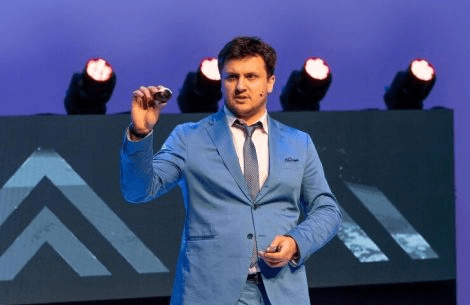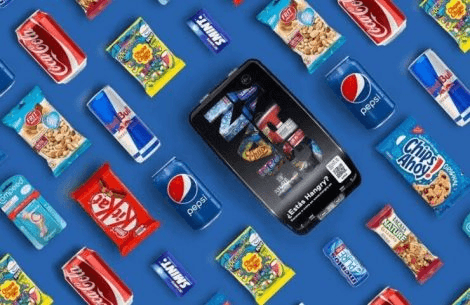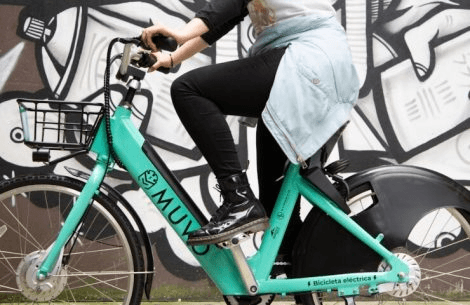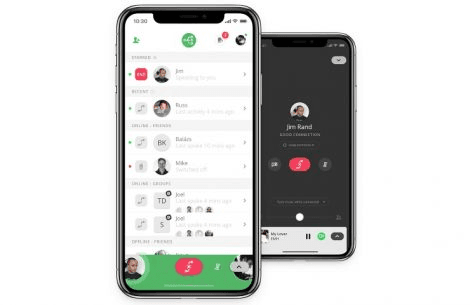- Home
- News And Events
- What’s Going On
- Five Phone-friendly Start-ups From Ie Business School Alumni
Five Phone-Friendly Start-ups from IE Business School Alumni

IE alumni ventures helping you recharge, ease addiction, facilitate mobility and so much more.
What is the first thing most people do in the morning? Even before they grab a cup of coffee or take a warm shower. Most start the day looking at their phone screen.
People chat, find transportation, order purchases and place orders with a few clicks. The booming tech sector boasts an array of big-growth scaleables and boutique-style ventures.
IE Business School’s start-up-friendly environment means that alumni emerge with the confidence to try their entrepreneurial hand, but also with solid experience to hone their ideas.
Many IE Business School alumni have created start-ups that look to use people’s phone apps to transform lives in unusual ways. Here are a handful of ventures to keep an eye on:
ALAViDA
When Elliot Stone moved to Madrid to complete his MBA at IE Business School, he was surprised by the party scene in the city. Stone noticed that many people lost track of the amount of booze they drank during a night out. This experience, along with an article written for The Atlantic called “The Irrationality of Alcoholics Anonymous”, sparked his interest in tackling alcohol addiction.
Stone graduated from IE in 2014 and two years later founded ALAViDA, a Vancouver based digital health company that offers a new approach to addiction treatment and an alternative to 12-step programs.
Stone is joined by his IE classmates, Marcelo Schneider as Chief Operating Officer and Chris Gomes as Chief Marketing Officer on the executive team.
Initially focused on the treatment of heavy drinking, ALAViDA has expanded to all substances offering a comprehensive solution for substance use that that can be easily built into employee benefit plans. Over 1 Million people now have access to ALAViDA services as a covered benefit allowing them to privately regain control over alcohol or substance use without leaving work or family, at a fraction of the cost of traditional treatment. By combining compassionate professional care, evidence-based methods and technology, clients are empowered to reach their goals. Their model offers anonymity and convenience, positioning ALAViDA as a treatment option for more people.
“Often there is so much stigma and barriers to finding treatment, that despite the consequences of their excessive alcohol use, most people struggling with heavy drinking choose not to engage in treatment of any kind. ALAViDA helps people achieve a healthier life that doesn't have to come at large social and personal cost. We believe that people wanting to make positive change should be met with open arms and practical tools, not obstacles and conditions,” co-founder and CEO Stone said.
Since starting in North America in 2016, ALAViDA boasts an 82% success rate in helping clients feel more in control of their drinking and stop drinking once they start.
“Of course we can help people in crisis at the end of their rope, but the real goal is to reach them before all that pain and misery, when a healthier relationship with alcohol is still possible.”
Elliot Stone told the Huffington Post
DISCOPERI
Oleksandr Bondarenko was in a car with his family, when suddenly the driver drove through a red light. Alarmed by this action, Bondarenko realized just how much road safety needed to improve. The incident inspired him to do something to make sure the level of road risk dropped to zero.
So in 2016, he founded Discoperi. The startup company builds AI products for solving road safety and congestion problems. Using cutting edge innovation, Discoperi has developed System “Eye”, an IoT device that is able to scan the road and inform the driver about any risk identified. While developing the System Eye product, the company built incredibly powerful AI capabilities and tools, which they later leveraged to build their second product, City AI.
“City AI is an AI-layer, which helps municipalities and cities to make their CCTVs smart. City AI identifies vehicles by makes, models, generations, colours, plate numbers, etc., helps to understand vehicles behaviour and optimise traffic flows. Today this is a revenue-generating product, which helps cities in making their roads safer and more efficient,” Bondarenko said.
According to Bondarenko, his International MBA at IE Business School provided him a great deal of resources and support.
“Being a mix of an MBA and startup accelerator --thanks to the IMBA program I could select a startup in IE Startup Lab-- I had the chance to feel what it is going to look like being a full-time startup founder.”
Oleksandr Bondarenko
HANGRY
Inspired by their ideas in the IE Venture Lab, four International MBA alums Wassim Berro, Maurice Karam, Luis Dura and Maria Jose Benavente decided to bring their start-up to life. Hangry is a custom-branded mobile ordering and reservation app that combines food and taxi passengers by offering products during the ride. Instead of providing customers with the common transportation experience, Hangry is a reflection of the future potential these services offer through combining consumer experiences.
“As we take more and more Uber and Cabify rides — and eventually, once autonomous cars drive us around — the purpose of the car will transform. The space once centred on getting us from point A to point B will become a portal for much more and this is where Hangry comes in,” explained Berro as to how Hangry differentiates itself as a company.
The idea behind Hangry is to link basic taxi transportation services and platforms to product consumption for passengers.
“From personal experience you never quite know what you’ll need when you’re on the move. An energy boost on your way to a big meeting, a phone charger when you’re down to 7%, or a much-needed snack at the end of the night—your time in an Uber or Cabify is sometimes the only chance you have to refuel and recharge on-the-go.”
Wassim Berro
MUVO
While studying at IE Business School, Daniel Otero (IMBA 2016) often used electric bicycles to get around the city. He noticed these bicycle stations everywhere in Madrid, a stark difference to his native Bogota. Thus, his idea to create an efficient and safe electric bicycle system through an app was born. It became Otero’s mission to take shared e-bikes to Latin America.
Muvo is an electric bike sharing app focused on micro mobility trips, with the goal to offer a different way to travel in the city, reducing pollution and the time spent commuting. As cities are shifting to what is called new urbanism, officials are prioritizing the construction of bigger sidewalks and pikebaths. This new shift has propelled micro mobility to become the fastest growing transportation alternative.
“My MBA experience played a major role in inspiring me to become an entrepreneur and to get into the tech startup world. Before IE, I knew nothing about bike sharing or transportation,” Otero said. In fact, Muvo was the evolution of another startup called Bicirolo, Otero’s thesis during the IMBA. He went through the venture lab process with that idea.
“It's worth noting that Bicirolo didn't make the cut to be in Venture Day, something that really bummed me out at the moment,” Otero said. “But, today Muvo is a company that has raised over $5 million and has done more than 1 million rides.”
Otero said it taught him persistence and the value of believing in yourself.
“To all the students out there that don’t get admitted into Venture Lab or Venture Day, don’t give up on your dreams!”
Daniel Otero
SYNERVOZ
Created by James Rand, an alum from the MBA Finance and Entrepreneurship program, Synervoz is a software development company based in Toronto, Canada. The company’s main focus is voice, audio, VoIP and entertainment through apps that allow users to really “connect” on the platforms. One of their apps, Switchboard, is a voice controlled form of instant communication that can be used with different applications on smart devices.
“We differentiate ourselves by doing things before anyone else. Sometimes that's good, sometimes it bites you in the ass. But that's entrepreneurship,” said Rand.
Rand was also able to snag investment from brands such as Virgin Media, Slack, 500 Startups, and Techstars, along with the inventor of Amazon’s Alexa and Uber’s first investor.
Amidst the situation with COVID-19, the company quickly adapted to how consumer behaviors have changed, as they were early in predicting the trend of audio applications to other services.
Rand said he benefited from his MBA’s in-class activities, research projects and the entrepreneurial environment at IE Business School.
“The MBA was also important from the perspective of getting out of the regular cadence that comes with a full time job,” Rand said. “Ideas and ambition come together when you part ways with your routine or whatever else may be holding you back.”
James Rand




